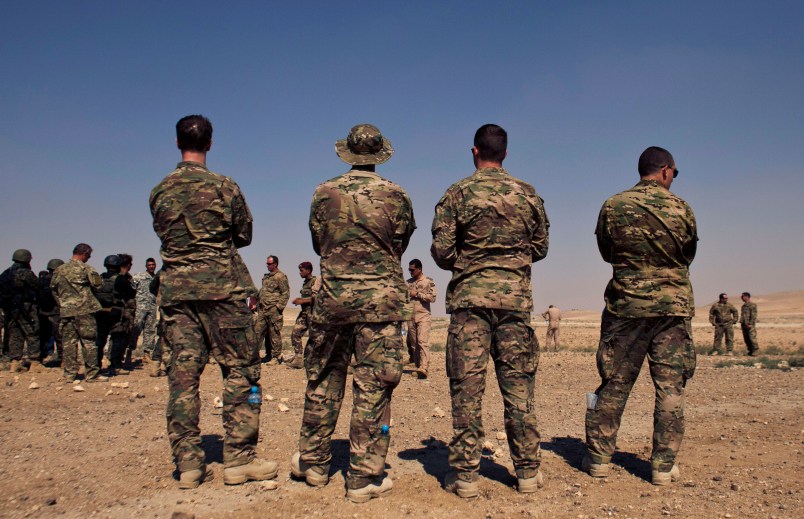I wanted to flag your attention to this NBC article about radicalization among current and retired US Special Forces personnel. NBC got access to private Facebook groups for these communities – again current and former. They had a lot of racist, far-right, QAnon type content. Not universal and not uncontested, but still a lot.
This is not terribly surprising. Special Forces commands are overwhelmingly male, overwhelmingly white and they’re embedded in a military culture which in itself leans in a heavily conservative direction. One thing I hope to focus on more in the coming months is the larger story this is part of, which I would define as the radicalization of American culture and politics in the wake of our intensive and brutalizing engagements in the Middle East over some thirty years.
It starts with the Gulf War in 1991, which is a massive effort but fairly quickly drawn down. That is umbilically connected to 9/11 and the far larger and more sustained engagements in Afghanistan and Iraq. (It’s the Gulf War which gets you the permanent US deployments in Saudi Arabia which are at least the nominal driver of al Qaida’s war with the US.) Here you have not only the traumatization and brutalizing of multiple generations of young Americans but also the roots of the cult of ‘tactical’ gun and military culture. You can see the first signs of it in the ‘gee-wow’ videos produced out of the Gulf War with laser guided munitions zeroing on buildings and vehicles in motion.
Large numbers of young Americans trained up on these weapons and the psychological impact of those deployments then cycle into domestic police organizations. The military that has lots of surplus weaponry ends up sending a lot of that firepower and technology to those same policing organizations, often to be used by retired or reserve military.
I say this not to indulge in stereotypes or suggest easy answers to complex problems. The US had military involvements before Iraq and Afghanistan. US gun culture long predates them. But all of these are combined. The rise of domestic political extremist groups – overwhelmingly though not exclusively on the right – grow heavily out of these military engagements and the social and cultural changes that came in their wake.






